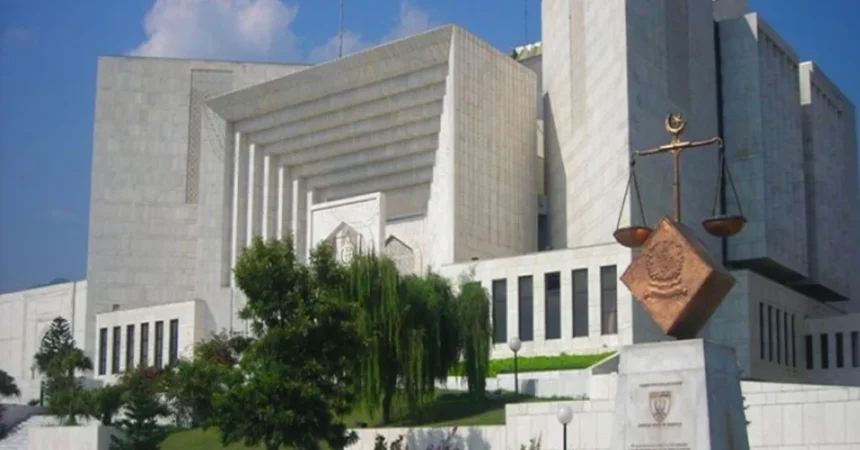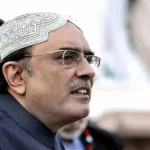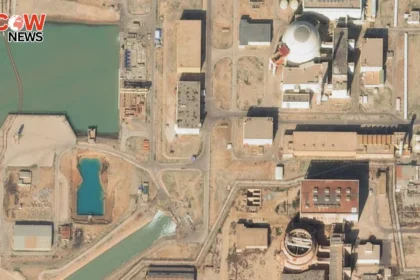Supreme Court Issues Revised Verdict in Mubarak Sani Case
The Supreme Court of Pakistan has recently delivered a landmark judgment in the case of Mubarak Sani, a former senator accused of corruption and financial misconduct. This revised verdict has garnered significant attention, as it not only alters previous rulings but also highlights the ongoing challenges faced by Pakistan’s judicial system in tackling corruption.
Background of the Case
Mubarak Sani, who served as a senator in Pakistan, became embroiled in controversy following allegations of financial impropriety during his tenure. The case emerged amid heightened scrutiny of public officials and their financial dealings, reflecting a broader national concern regarding corruption in Pakistan.
The initial investigation into Sani’s financial activities uncovered discrepancies in his reported income and assets. As a result, he faced charges related to money laundering and corruption, leading to a series of legal battles that culminated in the Supreme Court’s recent verdict.
The Initial Investigations
The allegations against Mubarak Sani began to surface when the Federal Investigation Agency (FIA) initiated an inquiry into the financial dealings of various public officials. Sani’s case came to light when investigators found irregularities in his financial disclosures. The investigation revealed that his declared assets did not align with his known sources of income, raising red flags about possible money laundering and corruption.
As part of the investigation, the FIA scrutinized bank records, property documents, and other financial statements related to Sani. The agency uncovered transactions that appeared inconsistent with his claimed financial status, leading to mounting evidence against him.
Sani was accused of misusing his position to facilitate corrupt practices, which sparked outrage among the public and led to calls for accountability. The allegations contributed to an already tense atmosphere regarding corruption in Pakistan, further fueling demands for legal reforms and stricter enforcement of anti-corruption laws.
Legal Proceedings
Following the investigation, the case was brought before the Anti-Corruption Court, where Sani faced a series of hearings. The prosecution presented its evidence, including financial documents, testimonies from witnesses, and expert analyses of Sani’s financial activities. The defense team, however, argued that the evidence was circumstantial and did not conclusively prove Sani’s involvement in corrupt practices.
The Anti-Corruption Court ultimately ruled against Sani, finding him guilty of corruption and sentencing him to imprisonment. This verdict was hailed by many as a significant step in Pakistan’s fight against corruption. However, Sani’s legal team promptly appealed the decision, asserting that the court had misinterpreted the evidence and overlooked critical facts that could exonerate their client.
The Supreme Court’s Review
As the case progressed through the appellate process, it eventually reached the Supreme Court. The apex court’s review of the Mubarak Sani case was closely watched by legal experts, political analysts, and the public, all eager to see how the highest judicial authority in Pakistan would handle such a politically charged case.
In its deliberations, the Supreme Court examined the evidence presented in the lower courts and evaluated the legal arguments put forth by both the prosecution and defense. The judges focused on several key aspects of the case, including the standards of evidence required to establish guilt in corruption cases and the principles of due process and fair trial.
The Revised Verdict
In its revised ruling, the Supreme Court issued a significant judgment that altered the previous verdict handed down by the Anti-Corruption Court. The court found that while there were sufficient grounds for investigation, the evidence presented against Mubarak Sani did not meet the rigorous standards required for a conviction.
The court emphasized that, in corruption cases, the burden of proof lies with the prosecution, and it must establish guilt beyond a reasonable doubt. The judges expressed concerns over the quality of evidence presented in Sani’s case, noting that much of it was circumstantial and did not provide a clear, unequivocal link between Sani and the alleged corrupt practices.
The Supreme Court’s decision effectively raised the bar for what constitutes sufficient evidence in corruption cases, emphasizing the importance of due process and the presumption of innocence. This ruling has sparked discussions about the challenges of prosecuting corruption in Pakistan, where legal and political hurdles often complicate matters.
Implications for the Legal System
The Supreme Court’s revised verdict in the Mubarak Sani case is likely to have significant implications for Pakistan’s legal landscape. By clarifying the standards of evidence required in corruption cases, the ruling may influence future investigations and prosecutions of public officials.
Legal experts have noted that this decision underscores the need for a comprehensive approach to tackling corruption in Pakistan. It highlights the importance of building a robust legal framework that not only addresses corruption but also protects the rights of individuals accused of wrongdoing.
Furthermore, the ruling has prompted discussions about the need for legal reforms to enhance the capacity and effectiveness of investigative agencies. Many stakeholders have called for better training and resources for law enforcement to ensure that they can effectively gather and present evidence in corruption cases.
The Role of Corruption in Pakistan’s Politics
Corruption has long been a pervasive issue in Pakistan, affecting various levels of government and public institutions. The Mubarak Sani case serves as a reminder of the challenges that lawmakers and enforcement agencies face in curbing corrupt practices.
As the public grows increasingly disillusioned with corruption in government, there are calls for stronger accountability measures. The recent Supreme Court ruling may reinvigorate discussions around legal reforms aimed at enhancing transparency and oversight in public office.
The political implications of corruption cannot be understated. Corruption scandals often erode public trust in elected officials and institutions, leading to disillusionment with the political process. In Pakistan, where political parties have historically faced accusations of corruption, the Mubarak Sani case serves as a pivotal moment in the ongoing battle for accountability.
Reactions to the Verdict
The Supreme Court’s decision has elicited mixed reactions from various stakeholders. Supporters of the ruling argue that it reinforces the principles of justice and due process. They contend that upholding these standards is essential for restoring public trust in the judicial system.
Conversely, critics of the verdict have expressed concerns that it may hinder anti-corruption efforts. Some argue that setting a high evidentiary standard could deter investigations into corruption, allowing unscrupulous individuals to evade accountability. Critics fear that this ruling may send a message to public officials that they can act with impunity, knowing that prosecution is unlikely unless overwhelming evidence is presented.
Future of Anti-Corruption Efforts
Moving forward, the implications of the Supreme Court’s ruling in the Mubarak Sani case will likely shape the trajectory of anti-corruption initiatives in Pakistan. Stakeholders, including government officials, legal practitioners, and civil society organizations, must grapple with the balance between ensuring justice and fostering accountability.
To strengthen anti-corruption measures, there is a pressing need for comprehensive reforms that address both the legal framework and the operational capacities of investigative agencies. This may involve enhancing training for law enforcement personnel, improving resource allocation, and fostering collaboration among various government bodies.
Additionally, there is a need for greater public engagement in anti-corruption efforts. Civil society organizations and citizens play a crucial role in holding public officials accountable and demanding transparency. Public pressure can drive lawmakers to enact reforms and prioritize anti-corruption initiatives.
The Public’s Role in Combating Corruption
The role of the public in combating corruption cannot be overstated. Citizens must remain vigilant and actively engage in holding public officials accountable. Raising awareness about corruption and advocating for transparency can empower communities to demand better governance.
Moreover, the media can serve as a watchdog by investigating corruption and exposing wrongdoings. Investigative journalism has played a vital role in uncovering corruption scandals, prompting legal action and reforms. A free and independent media is essential for fostering accountability and ensuring that public officials are held responsible for their actions.
Furthermore, public support for anti-corruption initiatives can provide a crucial counterbalance to political influences that may seek to undermine such efforts. By fostering a culture of accountability and integrity, citizens can play a pivotal role in shaping the future of governance in Pakistan.
The Supreme Court’s revised verdict in the Mubarak Sani case marks a critical juncture in Pakistan’s ongoing struggle against corruption. While the ruling clarifies the standards for prosecuting corruption, it also highlights the complexities of achieving justice in a challenging political landscape.
As the country grapples with the implications of this decision, it is imperative for stakeholders to work collaboratively toward strengthening the legal framework and ensuring that public officials are held accountable for their actions. By prioritizing transparency and integrity, Pakistan can take meaningful strides toward a more just and equitable society.
#MubarakSani #SupremeCourt #Pakistan #Corruption #LegalReforms #Justice #Accountability #Transparency #Governance







